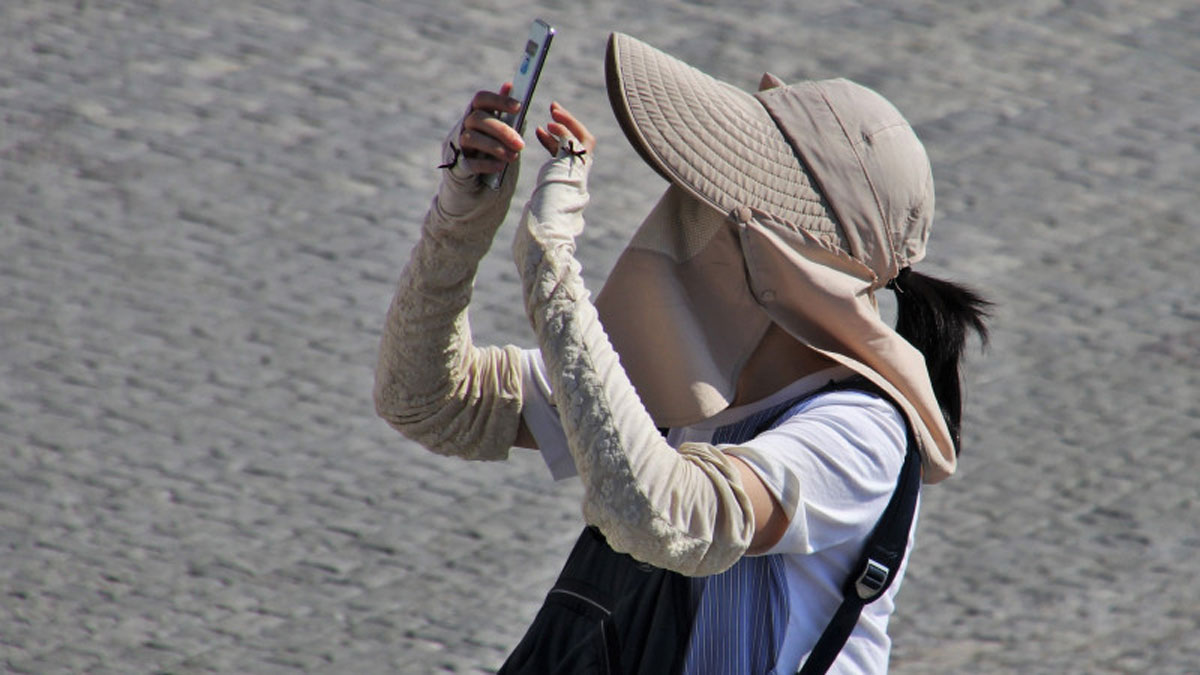In the mentality of the inhabitants of the Land of the Rising Sun, there are a lot of unusual features for tourists. DIP tells about the rules that tourists often break in Japan.
For many, their extreme workaholism, rigid social hierarchy, and closeness are incomprehensible. And also – unwillingness to lose face in front of others. But perhaps the most difficult thing for a tourist is that in Japanese society there are still many unwritten rules, breaking which you can get into an awkward situation.
True, when this happens to foreigners, the Japanese treat such punctures very condescendingly. Still, it’s better to be alert and try not to make mistakes that can be avoided.
1. Eat and drink while walking
In many countries, almost everyone does this. For most, it’s perfectly normal to chew burgers, pies, and snacks on the go. And sipping coffee from a paper cup or soda from a bottle along the way is considered an integral ritual of modern life. The Japanese are rarely seen munching on the run: it is customary for them to consume food in a relaxed atmosphere, without haste. You need to stop and enjoy the process, even if it’s street fast food from a vending machine. Although there are products for which an exception is made: for example, ice cream.
2. Season rice with soy sauce
Rice is served in Japan for breakfast, lunch, and dinner. It is used to balance the taste of other dishes. If a tourist in the presence of the Japanese pours soy sauce into a plate with white grains or dips rolls into it, they may look at him with bewilderment. The explanation is simple – the Japanese themselves do not do this. The fact is that an attempt to fill sushi with liters of soy sauce indicates that not everything is in order with the food itself.
3. Trying on clothes without a mask
Cosmetics often remain on things after trying them on. Prudent Japanese have come up with special disposable masks to protect clothes from stains: they are in every store and must be worn. If during the fitting you stain, for example, a sweater or a dress, you may be asked to buy an item.
4. Do not wear a medical mask in a public place at the slightest sign of illness
In Japan, even before the pandemic, the streets were always full of masked people. The situation when a sneezing or coughing passenger without protective equipment on his face rides next to you on the subway is unacceptable there. Citizens of the Land of the Rising Sun are very disciplined and responsible in this matter.
In a sense, this is the other side of workaholism: even a seriously cold Japanese will almost certainly put on a mask and go to work, and not to the clinic for sick leave.
5. Talking loudly on your cell phone
There are a lot of people living in Japan, and almost everyone has smartphones that they actively use. Active but quiet: an unspoken rule prohibits loud conversations on a mobile phone in public places – transport, hotel lobby, restaurant, even just on the street. Loud and intrusive ringtones are also banned.
6. Leave trash
The Japanese are taught from early childhood not to throw garbage on the ground. The legislation strictly regulates the disposal of waste, and large fines are provided for violations. We are used to the fact that in our public places, as a rule, there are street baskets, and tanks, where you can easily throw out a wrapper or a bottle. In Japan, there are almost no containers on the streets – people carry everything home and throw it away there.
7. Create inconvenience for public transport passengers
For example, putting a bag on a nearby empty seat or driving with a backpack behind your back. Such behavior is considered indecent and arrogant. An absent-minded tourist can be politely asked to put away their luggage so as not to disturb others, or even completely reprimanded for not paying attention to the needs of others.
8. Leave a tip
In Japan, service workers receive good salaries and do not expect additional bonuses from customers. Moreover, they consider the attempt to leave a tip offensive. If the guest of the restaurant nevertheless put banknotes into the account, they will try to catch up with him and return the money.
Tourists who are accustomed to Egyptian and Turkish service, where tips are considered almost mandatory, often make this mistake.
9. Show feelings in public
Although Japan is not a Muslim country, hugs, kisses, and other manifestations of feelings in public are condemned here. In the country, it’s not even customary to just touch people – no friendly kisses on the cheek, and business partners rarely shake hands. Japanese handshakes replace bows, and love passions are allowed only behind closed doors.

